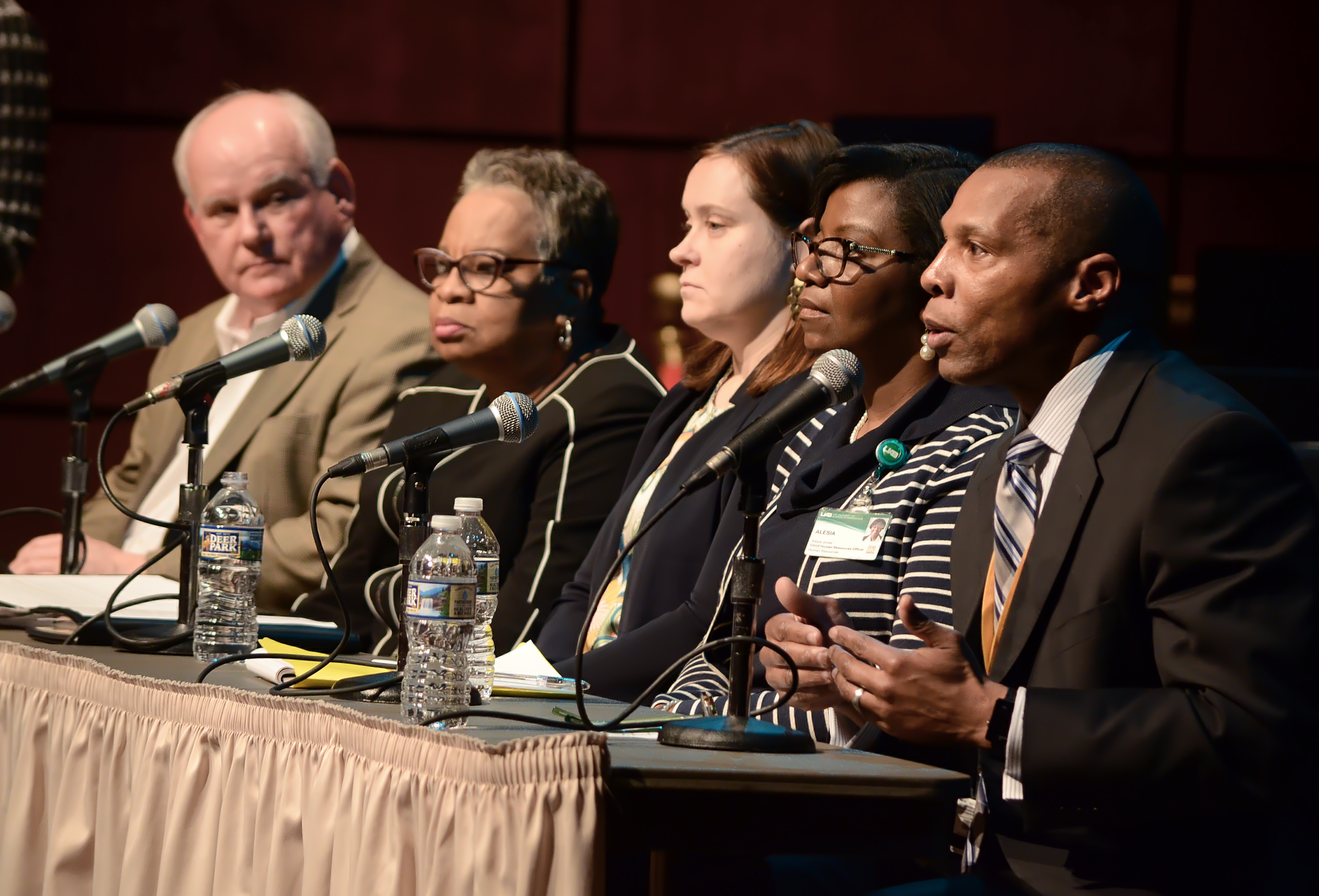
Several administrators sat on the panel discussing President Trump’s recent executive order on immigration. Photo by Ian Keel/Photo Editor
Tamara Imam
Branding and Outreach Manager
Over 100 students, faculty and community members gathered at UAB’s Alys Stephens Performing Arts Center Jemison Concert Hall at 5:30 p.m. on Wednesday, Feb. 1 for a discussion on President Trump’s executive order on immigration and travel.
The event, hosted by the Office of Diversity, Equity and Inclusion, was the third in an ongoing series of forums dedicated to “civil discourse.”
Panelists included UAB President Ray Watts, International Student and Scholar Services Director Catherine Crowe, Vice President for Diversity, Equity and Inclusion Paulette Patterson Dilworth, Chief Human Resources Officer Alesia Jones and Vice President for Student Affairs John Jones. Senior Vice Provost Suzanne Austin moderated the discussion.
According to Austin, the idea for Wednesday evening’s panel came from Watts, who on Monday released a statement regarding the executive order.
“UAB values our international students, faculty and staff,” Watts said in an email to students and faculty. “Our diversity forms the fabric of the rich and vibrant community that transforms us into responsible and engaged global citizens. We know there is confusion and anxiety over the order among people in our community, and we have reached out to those people directly affected by this order to offer guidance and support.
Attendees at the forum were able to write down questions on notecards that Austin read aloud for the panelists to answer.
Among criticism that Watts’ statement was “neutral” and “not reassuring,” the panelists emphasized that the university would not take a stance on either side of the political spectrum.
“What we model as a public institution of higher education in the United States is respect for debate, respect for all opinions and providing a safe environment for all members of our community,” Austin said.
According to Crowe, the Office of International Student and Scholar Services has not received any reports of UAB affiliates who were outside of the U.S. at the time that the ban went into effect.
In spite of this fact, a popular question among attendees concerned what UAB would do with student information, including immigration status. Several universities across the country, including the University of Michigan, have publicly stated that they will not release this information about their students unless compelled by law.
“There are several laws in place protecting private information, especially student records,” Crowe said. “We have no plans to release any information about the status of any individuals at UAB. Most of it would have to require a court order, and we would obviously follow the law, but there are no plans to release any information.”
